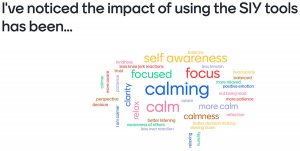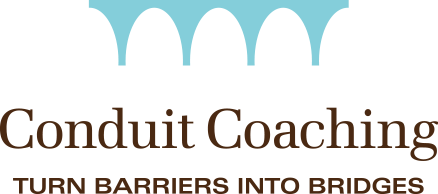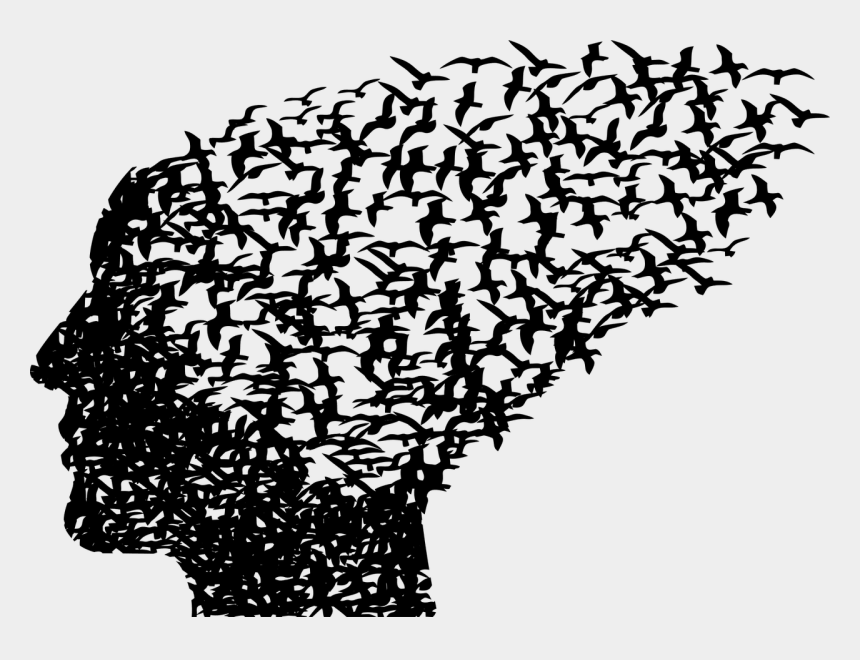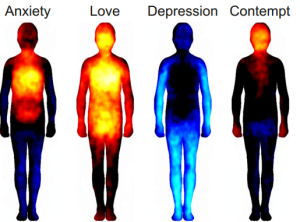My colleague was in a tailspin.
She’d suffered a setback and decided—despite all evidence to the contrary—that it confirmed her worst doubts and fears about herself.
Her determination to stick with this belief brought to mind a mantra I’d picked up from a gentle reminder list for hard days: Feelings are not facts.
Yes, emotions are real.
My colleague was experiencing genuine distress.
And . . . our feelings don’t necessarily reflect our reality.
Did you ever walk out of an exam despondent, convinced you’d flunked, only to learn you’d aced it? Or convinced you had COVID until you received your negative test results? (Or vice versa?)
That’s what I mean.
Understanding Emotions
When we’re lost in our feelings, we can slip into what psychologists call emotional reasoning, i.e., selectively seeking proof to reinforce our emotions, which may trigger our hard-wired human tendency toward pessimism.
Of course emotions colour our perspective . . . especially when we’re unaware of them.
Think about it.
After back-to-back Zoom meetings, we may not realize the virtual marathon has left us feeling overwhelmed. But we react anyway, maybe by barking at the family when they ask about dinner.
Ugh.
Human? Yes. Helpful? Not so much.
As we hit the one-year mark of pandemic life, understanding our emotions can help us unpack where we’ve been. It can also prepare us to navigate the “next normal’s” so we can bring out the best in ourselves and those we lead.
Emotions Primer
Firstly, emotions are biological states occurring in response to relevant internal or external stimuli (like hearing a fire alarm or seeing a loved one).
Secondly, emotions give us information that our conscious mind, with its limited bandwidth, may miss.
Emotions also influence our decision-making (for good or bad), so being aware of them can help us make better choices.
And finally, when we act on feelings alone, we deny ourselves the benefits of undeniable facts.
You are Not your Emotions
A favourite lesson from the mindfulness-based Emotional Intelligence program I teach is shifting the way we think and talk about our emotions.
Try it on.
Instead of “I am angry” shift it to “I feel anger in my body.”
Gaining that space helps us witness our emotions instead of getting caught up in them.
Then, rather than trying to stop our feelings (good luck with that), we can tune into what’s happening inside us and choose our responses.
There’s a difference between wanting to change how you feel and believing you shouldn’t feel the way you do.
Emotions are as they are.
What we can control is what we do with the information they give us.
Hacking our Emotions
A few more success strategies I’ve seen work over the past year for me personally and/or the leaders and teams I support . . .
- Make a list of indisputable truths. In this era of fake news, a written reminder of reality can be a powerful resource for experimenting with cognitive control when emotions run high.
- Kindly investigate moments of strong, not-so-positive emotions . . . not as a thinking exercise, but as an inquiry into your physiological experience. With Tara Brach alongside it can lead to deeper understanding and self-compassion.
- Become familiar with the full range of your emotions—the good, the bad and the ugly. For some of us, this is a life’s work. Journaling or meditating can be helpful here. So can simply stopping at random moments to notice what’s going on inside you.
- Expand your emotional vocabulary beyond the classics of Mad. Sad. Glad.
Reality Reminder
 Pandemic fatigue is affecting us all.
Pandemic fatigue is affecting us all.
Of course we can slip in to doomsday emotions.
But reality is always complex, never all or nothing.
Remembering that feelings aren’t facts can bring us back to balance where we access our Emotional Intelligence and our analytical mind–a research-proven recipe for effective leadership.
Bonus Emotion Hacks
Bonus Hack #1. Get a good night’s sleep.
Boat-loads of evidence (and likely plenty of your personal experience) suggests sleep plays a key role in regulating emotion, while not enough sleep amplifies basic emotional reactivity, increasing negative mood states (e.g., anxiety, depression, suicidality) and impairs the accurate recognition and outward expression of emotions.
Personally, I’m a work in progress when it comes to getting to bed at a reasonable time. And, boy is it ever obvious to me (and everyone around me) when I’ve been burning the candle at both ends.
Bonus Hack #2. No, growing your leaders’ Emotional Intelligence isn’t all on you. We can help.
Reach out if supporting your team to consistently bring their best (regardless of the COVID chaos around them) is a high priority.
We have a track record supporting leaders to expand their Emotional Intelligence and grow their capacity for Compassionate Leadership . . . even with all that’s happening today.
 One of our favourite programs is Search Inside Yourself (SIY) . . . we taught it virtually a few times in 2020 to great acclaim.
One of our favourite programs is Search Inside Yourself (SIY) . . . we taught it virtually a few times in 2020 to great acclaim.
- This course was excellent. I learned how to manage my anxiety as it arises thanks to the SIY tools.
- I learned techniques to help me cope with my life’s stressors and triggers, how to assess a situation, and to choose how and whether to act instead of just reacting. I was also able to be open and vulnerable with others who were learning—that was a wonderful part of the SIY experience.
- As I incorporate the SIY practices into my daily life I notice I’m becoming less reactive and more able to deal with the stresses that come my way. More importantly I’m able to move on from them more quickly.
Especially for Leaders & Teams in Seniors Care.
During COVID, Seniors Care leaders have been called not only to help their organizations manage the crisis operationally, but also to help the teams they supervise mentally, emotionally, and even ethically. Good news? Recent research among nurse leaders during COVID confirms . . .
- Intelligence about your emotions protects you against the risk of burnout.
- Keeping stress in perspective and focusing on what you can control (i.e. recognising that feelings aren't facts) contributes to a healthy work environment.
- In Seniors Care we give all day and don't often take time for ourselves. SIY taught me how to self-check: notice any tension (ask myself why am I feeling this way?), release it, and let my thoughts flow through. I’d highly recommend SIY for anyone working in our sector.
-
I talk about the SIY ideas in my daily huddles. My team appreciates the sharing, and some are using [the ideas] in the workplace and at home.
-
COVID has us wound up. The SIY ideas are important for helping us bring our best.







